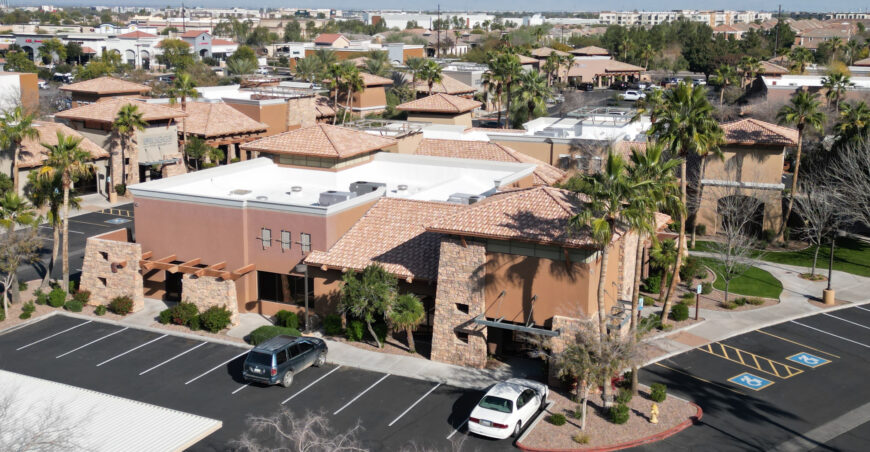The commercial real estate market offers a wealth of strategies to maximize financial performance, and one of the most impactful is the sale-leaseback transaction. This financial arrangement enables businesses to sell their real estate assets to an investor and simultaneously lease them back, maintaining operational continuity while unlocking liquidity. For investors, sale-leasebacks represent an opportunity to acquire high-quality properties with stable income potential. Let’s dive deeper into the mechanics of sale-leasebacks, their advantages, and considerations for businesses and investors.
Understanding Sale-Leasebacks
A sale-leaseback is a twofold transaction. First, a business sells its property to an investor, effectively transferring ownership. Second, the business leases the property back under a long-term lease agreement, often with terms favorable to both parties. This arrangement is common in sectors such as retail, healthcare, industrial, and office spaces, where companies prefer to focus their capital on core business activities rather than tying it up in real estate ownership.
Benefits for Businesses
Sale-leasebacks offer a range of financial and operational advantages, making them an attractive option for companies looking to boost liquidity or streamline their balance sheets.
1. Instant Access to Capital
Real estate ownership is an asset-heavy investment. By selling their property, businesses can convert this asset into cash, which can be used to expand operations, invest in innovation, or pay down existing debts.
2. Enhancing Financial Flexibility
Unlike traditional financing methods such as loans or lines of credit, sale-leasebacks avoid increasing liabilities. This can improve a company’s financial metrics, including debt-to-equity ratios and return on assets, making the business more appealing to investors or lenders.
3. Operational Stability
Businesses can continue operating in their current locations under lease agreements, avoiding the disruption and expense associated with relocating. This stability is especially critical for companies with significant infrastructure or branding tied to a particular site.
4. Avoiding Debt Financing
In high-interest-rate environments, borrowing may be costly or impractical. Sale-leasebacks provide an alternative source of funding, enabling businesses to leverage their property without incurring additional debt.
Advantages for Investors
From an investor’s perspective, sale-leasebacks present a unique opportunity to acquire quality properties while benefiting from predictable income streams.
1. Reliable Cash Flow
The leaseback portion of the transaction guarantees a stable, long-term income stream. Since the tenant is often a well-established business, the risk of vacancy or default is reduced.
2. Access to Premium Properties
Sale-leasebacks often involve properties in prime locations or with specialized features, such as healthcare facilities or distribution centers. These assets might not otherwise be available for purchase on the open market.
3. Low Management Burden
Many sale-leasebacks are structured as triple net leases (NNN), where the tenant assumes responsibility for property taxes, insurance, and maintenance. This reduces the investor’s operational involvement and enhances the investment’s appeal.
4. Portfolio Diversification
For real estate investors, sale-leasebacks offer a way to diversify portfolios with stable, income-generating assets. These investments can balance riskier ventures, creating a well-rounded portfolio.
Key Considerations for Businesses
While sale-leasebacks offer significant benefits, they also come with long-term obligations and financial implications. Businesses should carefully evaluate these factors before entering into an agreement.
1. Future Lease Costs
Transitioning from ownership to tenancy means businesses will have ongoing rent obligations. Companies should ensure that projected rental payments fit comfortably within their financial plans, especially if the lease includes escalation clauses.
2. Negotiating Lease Terms
The leaseback agreement should align with the company’s operational needs. Key considerations include lease duration, renewal options, and tenant responsibilities. Flexibility and favorable terms are critical for long-term success.
3. Tax Implications
Sale-leasebacks may result in a taxable gain on the property sale, but lease payments are typically deductible as business expenses. Consulting with tax professionals can help businesses optimize the transaction’s financial impact.
4. Timing and Market Conditions
Selling during a market downturn may result in lower proceeds, while waiting for market peaks could maximize value. Timing the transaction based on real estate market trends is crucial.
Key Considerations for Investors
For investors, due diligence is essential to ensure the transaction aligns with financial goals and risk tolerance. Here are some key factors to evaluate:
1. Tenant Creditworthiness
The tenant’s financial stability is paramount. Investors should assess the selling business’s credit history, profitability, and long-term viability to mitigate the risk of default.
2. Property Valuation
Investors should confirm the property’s value aligns with market conditions and the purchase price. Overpaying can compromise return on investment, especially in a long-term lease scenario.
3. Lease Structure
The lease agreement should clearly define responsibilities, rent escalations, and renewal terms. Investors should prioritize agreements that offer steady returns while minimizing risk.
4. Local Market Trends
Understanding the property’s location dynamics, such as population growth, infrastructure development, and economic conditions, can help investors make informed decisions about the asset’s long-term potential.
Sale-Leasebacks in Action
Sale-leasebacks are especially relevant in industries undergoing transformation or economic uncertainty. For instance, healthcare providers often use sale-leasebacks to fund new technologies or expand patient services. Retailers have leveraged this strategy to adapt to shifting consumer behavior and e-commerce growth. In the industrial sector, sale-leasebacks have gained traction as companies seek to monetize high-value properties like distribution centers while maintaining operational efficiency.
Spectrum falls Medical, a single-tenant medical net-leased investment in Gilbert, Arizona, exemplifies the strategic benefits of sale-leaseback transactions. The seven-year sale-leaseback arrangement was facilitated by the ICRE Investment Team, showcasing their expertise in structuring deals that unlock capital for businesses while delivering stable, income-generating opportunities for investors.
Why Sale-Leasebacks Are Trending
In today’s fluctuating economy, sale-leasebacks have emerged as a versatile tool for businesses and investors alike. For companies, the liquidity gained through these transactions can be a lifeline in times of economic stress or a growth accelerator in favorable conditions. For investors, the predictability of cash flows and access to premium assets make sale-leasebacks an appealing addition to any portfolio.
Sale-leasebacks offer a mutually beneficial solution for businesses seeking liquidity and investors pursuing stable returns. By transforming ownership into opportunity, this strategy enables businesses to focus on growth while allowing investors to acquire valuable real estate assets. However, success requires careful planning, negotiation, and due diligence.
Whether you’re a business owner exploring ways to unlock capital or an investor seeking high-quality assets, sale-leasebacks are a proven strategy worth considering. With the right approach, they can unlock the potential of commercial real estate for all parties involved.
If you’re considering a sale-leaseback transaction to unlock capital or diversify your investment portfolio, the ICRE Investment Team is here to guide you. With expertise in structuring deals that benefit both businesses and investors, we help transform ownership into opportunity. Whether you’re looking to boost liquidity, streamline your balance sheet, or secure high-quality, income-generating assets, we provide tailored insights and strategic solutions to achieve your goals. Connect with us today to explore how sale-leasebacks can elevate your commercial real estate strategy.
















